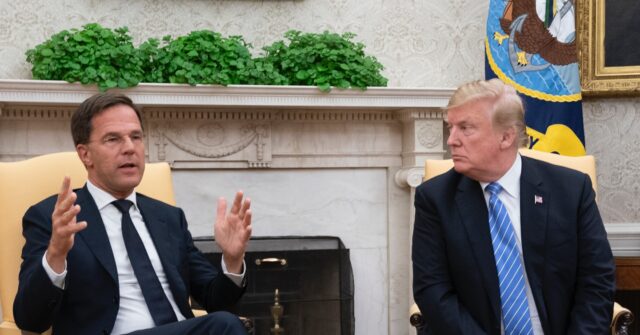The geopolitical landscape is marked by increasing tensions and complexities, particularly regarding the ongoing war in Ukraine and the potential repercussions for global security. NATO Secretary General Mark Rutte has issued a stark warning to incoming U.S. President Donald Trump about the dangers of negotiating a peace deal with Russia that might inadvertently signal weakness to other adversarial nations, specifically China, Iran, and North Korea. Rutte expressed concerns over how such a peace agreement could embolden these nations to pursue their aggressive agendas, posing threats not just to Europe, but also to the United States itself. He noted that the collaboration among these nations could lead to a more connected and perilous global conflict scene, which requires the United States to carefully assess its diplomatic moves.
During their recent meeting at Mar-a-Lago, Rutte articulated that if the U.S. were to settle with Russia in a manner that undermines Ukraine’s position, it could encourage adversaries like North Korea and Iran to take advantage of that perceived weakness. He emphasized the importance of maintaining a united front against those who would exploit instability, particularly pointing to the advanced missile technology exchanges between Russia and North Korea as direct threats to both American allies in Asia and the U.S. mainland itself. The interconnectedness of these global conflicts, as Rutte pointed out, indicates that a peace deal in Ukraine could have long-lasting ramifications on international security, especially as adversaries might see any concessions as a green light for their own ambitions.
Moreover, Rutte highlighted China’s watchful stance during the negotiations between the U.S. and Russia. He expressed apprehension that a swift resolution in Ukraine could embolden Xi Jinping to consider military action against Taiwan, which poses a dilemma for U.S. foreign policy, as Taiwan operates as an informal ally while being claimed by the Chinese state. Rutte’s remarks stress the need for a cautious approach when dealing with international negotiations, as the stakes could go beyond Ukraine, influencing broader geopolitical dynamics and alliances.
Interestingly, despite Rutte’s cautionary stance, he mentioned having a positive rapport with Trump, suggesting that their prior interactions could aid in fostering a productive working relationship as Trump approaches his presidency. Trump has signaled a strong interest in resolving the Ukraine conflict swiftly and has begun taking steps to engage with key players in the geopolitical landscape ahead of his official inauguration. This intention aligns with Trump’s previous claims during his first term, arguing that Moscow’s aggression was contained, a point his allies have been quick to highlight.
The current sentiments of Ukrainian President Volodymyr Zelensky add another layer to this complex situation. Recently, Zelensky hinted at the possibility of a peace agreement that might not require Ukraine to reclaim all the territories currently occupied by Russia. Instead, he proposed freezing the front lines while pursuing diplomatic avenues for territorial disputes. This approach could theoretically create a framework for negotiation wherein Ukraine requests the protection under NATO’s umbrella for its remaining territories, though such a membership would be complicated due to constitutional prohibitions against recognizing Russian control over any Ukrainian land.
As efforts to negotiate a potential peace agreement evolve, significant uncertainties remain regarding whether such arrangements would be palatable to the Kremlin. Ultimately, the discussions surrounding Ukraine’s future, the implications of a possible NATO membership, and the international response to Russian aggression are set against a backdrop of heightened tensions and an increasingly volatile global order. The stakes are high, as various nations remain vigilant, ready to capitalize on perceived weaknesses that could arise from U.S. negotiations with Russia. The resulting interactions will shape not only the fate of Ukraine but the broader geopolitical climate in which these nations operate.

